On the 10th of December 1948, representatives of 58 countries from all parts of the world came together in Paris to write world history. The group members of the United Nations General Assembly adopted the Universal Declaration of Human Rights. While the document focuses on basic rights and liberties of all human beings, it also contains one crucial sentence regarding media and communication. It states that everyone has the right to seek, receive, and import information and ideas through any media and regardless of frontiers.
More than 70 years later, this fundamental human right is still disregarded in many parts of the world. The World Press Freedom Index 2020 of the non-governmental organization Reporters Without Borders (RSF) ranks Libya 164th out of 180 countries. The organization writes that political instability and security threats have taken a heavy toll on Libya’s media and journalists“. Media outlets are turning into propaganda outlets and the conflict’s political and military actors have become news censors“. The European Union also voiced its concern recently and demanded that those who commit crimes against journalists are brought to justice“.
Ten years after the overthrow of long-term dictator Muammar Gaddafi, the transition process in Libya is proving to be much more difficult than expected and armed groups have established local power centers all over the country. The violation of the Libyan citizens’ rights to access information takes place on an institutional as well as on a personal level. Institutionally, the Libyan state has not yet succeeded in creating the conditions for a pluralistic media system. State broadcasters are primarily propaganda instruments. Private broadcasters are often funded from abroad and have their own political agenda. Libyan media experts point out that the main law that regulates the Libyan media landscape was enacted in 1976 and thus still stems from the era of dictatorship. It is hardly surprising that this law imposes strict censorship rules on journalists and media houses.
Besides the legal and institutional threats to a free flow of information personal attacks on journalists have been increasing in a worrisome speed. The arrest of Mohammed Baayou, head of Libya’s state-owned media corporation, on October 20 2020 is just the lastest example of a long list of intimidations, detentions, threats and incidences of physical violence. Shorty before Baayou’s arrest, the director of the regional radio station Al-Jawhara had been detained and two journalists of the private television channel Libya Alahrar were apprehended according to local media reports. These direct attacks on media freedom rights are carried out by armed groups affiliated with different sides of the conflict.
However, it is not only the restricted access to information due to institutional obstacles and personal intimidation which poses a threat to the freedom of information. It is also the worrisome trend of a heavy increase of disinformation campaigns in tradional and social media that impedes the access to accurate information for Libyan citizens. Numerous experts speak of Facebook as a new battlefield in the conflict. Fake news are increasingly becoming a strategic weapon in a struggle to win the fight of opinions and to defame the opponent. The problem has been made worse in recent months by many myths and conspiracy theories surrounding the coronavirus.
This is why DW Akademie (DWA) and its partners work on different levels to contribute to a free access to information. Libyan journalists can advance their professional skills by attending trainings on topics such as journalistic research, women in media professions and mobile reporting. New training modules are currently being developed that directly focus on an improved personal safety of media professionals. Last by not least, Libyan journalists are being trained in the latest tools and methods to detect and debunk fake news. These efforts have already resulted in numerous fact checking initiatives over the country. It certainly is a long way still to ensure that all Libyan can benefit from their basic information rights that were proclaimed more than 70 years ago. But small steps towards this goal are being made everyday.
Jan Philipp Scholz
